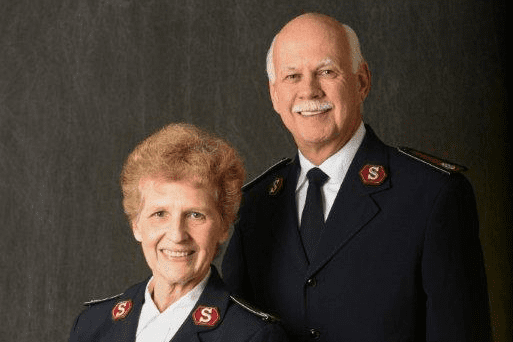Register now for the National Social Services and Disaster Management Conference
By James Read, Ph.D. –
According to Forbes, The Salvation Army in the U.S. received more donations than any other charity except United Way in 2013. In Canada, The Salvation Army proudly announces that it is the single largest private provider of social services in the country. Similar stories could be told elsewhere in the “more developed world.” Salvation Army social services are big.
But big or small, we should want to know why they exist at all. What values root Salvation Army social services? What aspirations move them forward? Socrates said the unexamined life is not worth living. I think that applies to organizations as well as individuals. There is no reason to be big if you don’t stand for something.
In Origins of the Salvation Army, historian Norman Murdoch made waves by claiming that social services work was first taken up primarily as a tactic for organizational survival. “It was the Army’s failure to grow as a revivalist sect…that turned it in the direction of social service,” he wrote.
Other historians have disagreed. In their book Boundless Salvation: The Shorter Writings of William Booth, Andrew Eason and Roger Green show that the first social services actually started before The Salvation Army changed its name from the Christian Mission. “While the chief object and aim of the Christian Mission is to bring sinners to Jesus,” one of the Missioners said, “we feel it a duty and a privilege to minister to the bodily wants of the [poor].”
What really caused The Salvation Army’s social services to swamp the efforts of thousands of other well-meaning Christian charities in late-19th century England was two-fold, according to Green. First, the organizational capacity shown by Salvation Army “pilot projects” proved that it could deliver if entrusted with a bigger task. Second, was the emergence of a theology that refused to separate welfare of an eternal soul from that soul’s temporal well-being. To be concerned about whether someone would get to Heaven, you had to be concerned about how they fared in this world. In a breakthrough article published in 1889, William Booth said, “[salvation] meant not only [being] saved from the miseries of the future world, but from the miseries of this [world] also.”
I like the way Professor Ed McKinley put it. In his history of The Salvation Army in the U.S., he said, “it was inevitable that an organization…propagating a gospel of universal love…would be drawn to recognize one supreme fact: there is no true religion that is not acted out in compassion…The gospel message must be accompanied by expressions of love so unmistakable that no potential convert could miss them; then only would the good news of God’s grace seem real….It was only half enough to declare that God is love: The Salvation Army would show that He was.”
_________________________________
The full article on the history of social services in The Salvation Army can be found in the upcoming spring issue of Caring. See more at caringmagazine.org.
See more about the conference and register at nssdmc.org.











